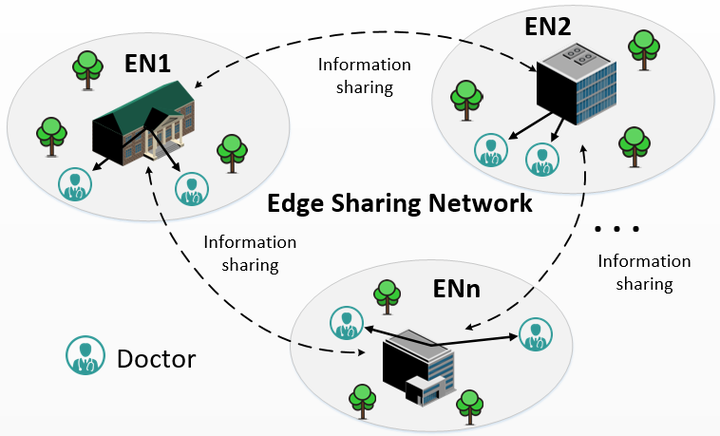Blockchain-Enabled Contextual Online Learning Under Local Differential Privacy for Coronary Heart Disease Diagnosis in Mobile Edge Computing
 Workflow of contextual online learning system in edge computing for CHD diagnosis
Workflow of contextual online learning system in edge computing for CHD diagnosisAbstract
Due to the increasing medical data for coronary heart disease (CHD) diagnosis, how to assist doctors to make proper clinical diagnosis has attracted considerable attention. However, it faces many challenges, including personalized diagnosis, high dimensional datasets, clinical privacy concerns and insufficient computing resources. To handle these issues, we propose a novel blockchainenabled contextual online learning model under local differential privacy for CHD diagnosis in mobile edge computing. Various edge nodes in the network can collaborate with each other to achieve information sharing, which guarantees that CHD diagnosis is suitable and reliable. To support the dynamically increasing dataset, we adopt a top-down tree structure to contain medical records which is partitioned adaptively. Furthermore, we consider patients’ contexts (e.g., lifestyle, medical history records, and physical features) to provide more accurate diagnosis. Besides, to protect the privacy of patients and medical transactions without any trusted third party, we utilize the local differential privacy with randomised response mechanism and ensure blockchain-enabled information-sharing authentication under multi-party computation. Based on the theoretical analysis, we confirm that we provide real-time and precious CHD diagnosis for patients with sublinear regret, and achieve efficient privacy protection. The experimental results validate that our algorithm outperforms other algorithm benchmarks on running time, error rate and diagnosis accuracy.